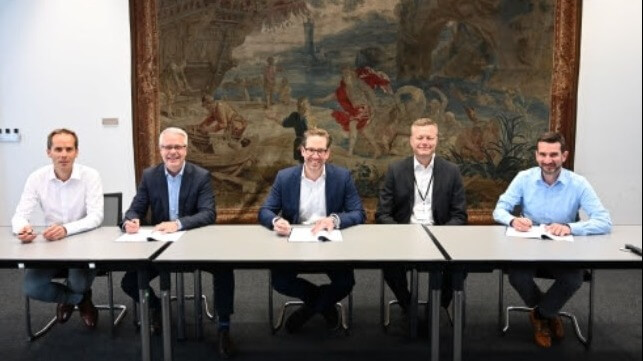MAN Energy Solutions Signs MoU with Stena and Proman

MAN Energy Solutions has signed a Memorandum of Understanding (MoU) with Stena Teknik – Stena’s inhouse R&D division – and Proman – the world’s second largest methanol producer – regarding their mutual cooperation on a project to retrofit MAN 48/60 engines to make them capable of dual-fuel, diesel and methanol operation. Stena and Proman announced their partnership to develop a methanol retrofit and fuel-supply solution last year.
Stefan Eefting, Head of PrimeServ Germany, and Bernd Siebert, Head of Retrofit & Upgrades, signed the MoU on behalf of MAN Energy Solutions, while Ron Gerlach, Technical Director signed on behalf of Stena. Peter Schild, Director of Marine Fuels, signed for Proman.
Eefting said: “MAN Energy Solutions is happy to work with industry partners on decarbonising the marine segment, a sentiment that Stena and Proman happily share. Methanol has great potential as a future-fuel and is clean, efficient and safe to work with. It offers significant greenhouse-gas reductions, and is even net-zero when produced from renewable energy sources. I’m certain that many interested parties will be watching this retrofit’s progress.”
Under the terms of the agreement, the project will start with an initial feasibility study, defining the scope and limits of the project, the division of work and respective responsibilities. The primary aim of this is to investigate methanol combustion according to the Otto combustion principle with MeOH port fuel injection due to the inherent advantages for legacy installations. Developments on MeOH direct injection technology for newbuilds and the potential for later retrofits may also be considered here.
Upon successful completion of the feasibility study, the second phase would involve the retrofit of the engine(s), commissioning and field testing. The third and final phase would then involve the completion of field testing, and engine handover for commercial operation.
The products and services herein described in this press release are not endorsed by The Maritime Executive.
